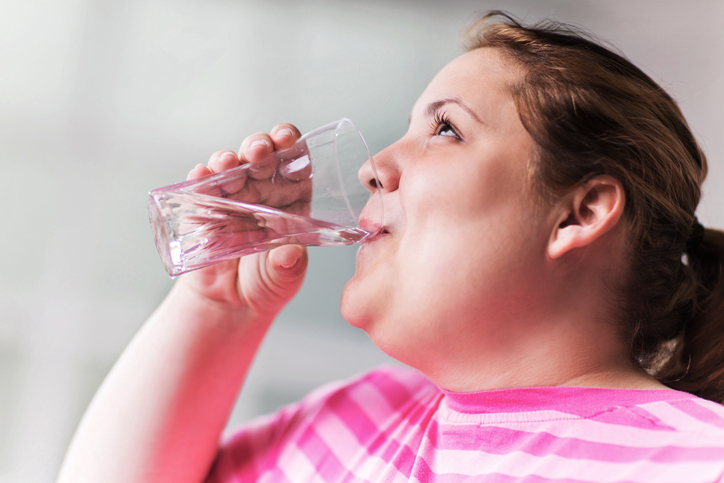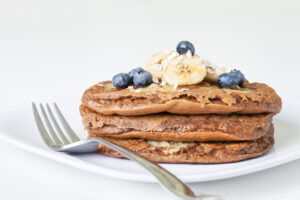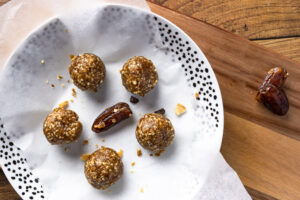Although we enjoy eating food, the primary reason we do it is to gain energy for our bodies to function. If you’re lacking in energy despite eating enough food—and you’ve no underlying medical issues that may be causing it— it could be a sign that you need to boost the nutrients in your diet.
Food is fuel and our bodies crave a balanced, nutritious diet to function at their best. Here’s our top tips to eat to beat tiredness and fatigue:
- Drink up. We need around 6-8 glasses of water per day to be adequately hydrated. Lots of us don’t drink enough water. Dehydration leads to less oxygen reaching the brain, causing us to feel tired, muddled and less alert.
- Steady your blood sugar levels. Fluctuations greatly affect our energy, with lows leaving us feeling sleepy and moody. Foods that cause havoc with our blood glucose are refined (processed) carbohydrates like white bread, pasta and rice, and sugary foods like cakes, biscuits, and sodas. If we choose foods with a lower glycemic index —a scale that rates the way food affects blood sugar—we’ll benefit from a steady release of energy.
Simple swaps:
White pasta – Brown pasta
Baked potato – Baked sweet potato
White bread – Wholemeal/seeded brown bread
Bag of crisps – Handful nuts and seeds
Soda – Diet soda or fizzy water
- Load up on B vitamins. These play an important role in converting the food we eat into energy. Whole, unprocessed foods like fruit, vegetables, seafood, meat, fish, and wholegrains are all good sources.
- Munch on magnesium rich foods. It’s a wonder mineral that helps our body convert food to energy, improves brain health, lifts our mood and more. Try dark leafy greens, nuts and seeds, beans, fish, whole grains, dark chocolate, yogurt, avocados, and bananas to boost those magnesium levels.
- Fill up on fibre. Fibre helps us to feel fuller for longer and is vital for bowel health too. Oats, brown rice, legumes, fruit and veg are all good sources.
- Nibble on protein. Because it takes our bodies longer to digest and absorb protein, it offers us a slower releasing energy. Lean protein like chicken, fish, egg, hummus, and yoghurt are great options to snack on.
- Don’t forget the iron. A vital mineral for producing red blood cells which provide oxygen to our bodies. If we’re lacking in iron, we can become anaemic which causes extreme tiredness, pale skin, headaches, and dizziness. Sources include: Lean beef, chicken, turkey, beans, lentils, tofu, cashew nuts and spinach. We can increase the rate of iron absorption by eating it with vitamin C rich foods like oranges, peppers, broccoli, or a small glass of orange juice.
Anything to avoid?
- Too much caffeine can leave you feeling zonked later in the day and can threaten a good night’s sleep if you drink it too late in the day. Try to avoid highly caffeinated drinks after 3pm. Caffeine tolerance is quite individual so you may need to monitor this and adjust the time until you feel it doesn’t impact on your sleep.
- Excess alcohol. As it’s a depressant, meaning it slows down some of the functions in the body, it can make us feel drowsy. Worse still, it can rob us of restful sleep at night too.
- Processed, refined foods. Choose unprocessed foods when you can and avoid those high in sugar or those that have a high GI value, as they tend to quickly raise your blood glucose levels and drop quickly, which can drain your energy levels.
Try to be mindful of the meals you prepare and snacks you reach for when you’re lacking energy. The quick fix that sugar or caffeine provides soon recedes, often leaving you feeling more fatigued than before. By pairing nutritious foods with regular exercise and good quality sleep, you’ll be brimming with energy in no time.




